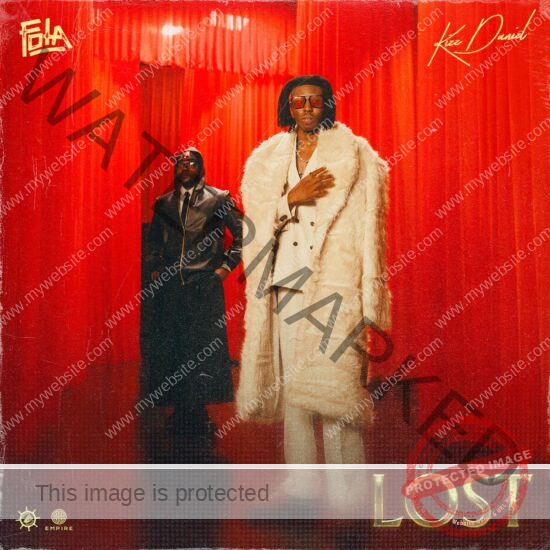M.I Abaga Net Worth 2025: Biography, and Career Achievements

Called the “Chairman” by his fans, M.I. Abaga is a popular name in the spirits of those who love Nigerian music, especially in the hip-hop genre. Born in the unlikeliest of places for hip-hop (Jos, Nigeria), his name is intertwined with the evolution of Nigerian rap; he married the indigenous sound with a modern touch.
As an artist, he has continuously given platforms to upcoming artists and scores major points as a music executive. His accolades as an artist are abundant; the sheer number of awards and nominations in this article speak to how large of an impact he has made on the hip-hop genre in Nigeria, as well as the music scene overall.
It is estimated that M.I. Abaga’s net worth is in the millions. There is no way to truly know his net worth, but his achievements do suggest that he is not cash-strapped. M should be seen as one of the biggest movers and shakers in the music scene in Nigeria; his legacy will ring far into the future.
Early Life and Background
Jude Abaga was born in Jos, Plateau State, Nigeria, and came from a very music-loving family. His dad was a pastor, and his mom was a woman who loved and enjoyed music, so growing up, as well as his other siblings, they were very exposed to music. It made M. I had an appreciation for music at a very young age. He fell in love with every genre of music, and he could always identify with everything. His love of music grew more in his school: he went to Baptist High School in Jos, and the school he went to allowed him to be super creative because they did various musical activities and responsibilities and performances that he was always a part of.
Upon graduation from High School M.I went to Calvin College in Michigan, USA. It was this change of scenario that gave him more insight into the international music scene, seeing how it was received from different parts of the world.
Music Career Breakthrough
M.I. Abaga returned to Nigeria in 2003, hellbent on bringing hip-hop to the foreground. Having been exposed to the genre while in the US, M.I. was captivated by not only its undeniable cool factor but also the possibility of recasting mundane, everyday scenarios into insightful, engaging narratives that spoke critically to one’s context.
In 2006, when M.I. finally released his debut single, Crowd Mentality, the hip-hop moment officially arrived in Nigeria, reducing the prominence of other music genres. By 2008, M.I. had released his debut album, Talk About It, to both critical and commercial success. While the work was an undeniable masterpiece, it also significantly transformed the relationship between the Nigerian audience and hip hop music due, in no small part, to key tracks such as “Safe” and “Nobody.”
The Chairman Era and Further Success
M.I.’s second album, MI2: The Movie, released in 2010, announced to the artist on the continent and worldwide that he had finally found himself and discovered how to tell his most important stories with his craft. The record was both a lavish host to a variety of collaborators and sonic experiences and a grand unveiling of a new journey that M.I. had embarked on, a turn on the pivot that was the definition of hip-hop music in Nigeria. The vividly theatrical album was conversations at the kiosks and on the playground, commercials between radio show segments, and discussions for academic parsing.
In 2014, the star power executive also delivered his long-awaited project, The Chairman, a piece of sonic documentation marking his journey through great monumental moments of his life and the risky scandals of his time. The transactional album was a meditation on the codes to success and an industry tell-all on the heavy price of fame.
As an executive at Chocolate City Music, by way of wading through his responsibilities of building up, by the books, new impressions of the old model of the music recruitment business, Judah also injected new artists into the company’s roster, the sensation that will momentarily be discovered in the music scene marketplace at an exhilarating rate, and served, extensively, as a mentor.
M.I Abaga’s Musical Evolution
To be published in 2018, M.I.’s fourth record marks a pivot—a profound tour of his self-worth and the exploration of mental health. He’s sunk a shovel into the earth of his identity, the enriched dirt of what’s made his mind, and the succulents and weeds of this labor, his memories and experiences.
Contrary to the self-help described, this was more a curse, or let’s say, an opposed predicament to be of typically characteristic M.I. You could expect an update from the Internet rapper on new and old topics—what he’s been up to: his breakup, his favorite video games, new series he’s been watching, why iso standard is overtly dominant, why I hate your favorite exotic-sounding fruit, why he’s blue at night, how he feels about his favorite character from a note of my favorite series becoming rebooted (bastardized, really), how does one get over relationship trauma, or the act of getting sexy!
M.I Abaga’s Net Worth
M.I. Abaga’s net worth is speculated to be roughly $5 million-$8 million (as of 2025). These numbers show a range of M.I.’s earnings based on his acclaimed music career and various other endeavors.
This Nigerian musician struck a chord with an entire generation. His unique sound and introspective lyrics connected with fans in a way that few other artists ever have. But M.I. Abaga is much more than just a musician.
M.I. obviously does make some money from albums and hit singles. He has developed quite a large fan base that buys physical/digital copies of his music. Ethical sites like Apple Music and Spotify also give M.I. an opportunity to profit under the new and “not-so-improved” business model of the music industry.
I’m sure that many artists and fans will attest that streaming platforms are not nearly as rewarding as physical copies. But for now, it is good enough to at least keep M.I. relevant with new listeners and increase sales.
The brunt of M.I. Abaga’s earnings comes from brand endorsements. Unlike physical copies or RDMS, this reward is quite substantial. Typically, when highly visible acts get enough promotion, other sponsors look to benefit from the collaboration. Brands will pay some artists (like M.I. Abaga) to “align” the artist’s fan base and the brand under one roof.
A good summary of M.I. Abaga’s net worth includes his earnings from LPs, CDs (physical copies), Spotify/Apple Music streams, Radio, Youtube, Personal brand, and publishing deals + label production discographies (that gain MASSIVE “metaphorical” interest), and countless other revenue streams. M.I. Abaga is running up the “chartered” 2024 music industry. It’ll be really interesting to see where M.I. ends up & how high the year 2024 puts him on the list for some of the newest artists of 2021.
Career Achievements
Known as the “Chairman” of Nigerian hip-hop, M.I Abaga has achieved many of the things that his moniker suggests. His list of awards includes The Headies for Best Rap Album and Best Hip-Hop Revelation (among others), and he’s scooped up international nominations too. He’s a leading figure in the music space for sure.
In Nigerian hip-hop, M.I.’s been the one to carry the crown, mostly. He’s figured out how to give “contemporary” culture and “hip-hop” culture (from Nigeria) the ultimate blend. A bit of hip-hop here and there, with Nigeria here and there, too. His resulting music became Nigeria’s case study for making rap in Nigeria. Artists that couldn’t think twice before writing hip-hop spun out into deeper thoughts. Others in the industry, too. New artists launched on a wave that made Nigeria’s “generally accepted” version of hip-hop. Of course, “hip-hop” in Nigeria became richer after.
It’s also important to note that, obviously, M.I.’s raised the level of Nigeria’s “music scene” a number of times. Here, he just can’t be beat.
Jude Abaga was born in 1981 in Jos, Nigeria and has become something of a big deal. His household was musical; he heard songs from a wide array of genres, but when hip-hop entered the equation, something stuck. M.I. moved to the United States for school, got good at rapping, moved back to Nigeria, and was rudely informed that the music he was making had no audience there. So, in 2008, the ‘Talk About It’ album happened. His lyrical skill, wordplay, and unique approach made a big splash, and people were digging it.
When people mention the greats of Nigerian hip-hop, M.I Abaga’s name comes up. Since that debut, he’s put tons of rappers—quite a few of them his equals and/or superiors—into his ‘influenced by M.I.’ box. He brings elements of indigenous sound into the mix and mediates it with foreign stuff everyone f*s with. Everybody likes M.I. His mark as a super-dope artist, as well as his role in running Chocolate City, has been instrumental in the progress of other artists of his generation.
Every feature, co-sign, and creative alliance is a move to help deliver on a promise: that Nigeria’s place on the world stage, the globally recognized identity of Nigerian music, the business with and for new creative industry talent, and the policy regarding these things can be better. M.I. has hit the point in his career (as an artist and as an executive with Chocolate City) that it’s no longer just about broadening the ‘influenced by M.I.’ box. Some might call him the Kanye West of Africa: he’s no savior, but the dude’s got ambition.




![[DOWNLOAD] Working For My Good – Anny](https://gospelmusicbase.com/wp-content/uploads/2025/05/Working-For-My-Good-Anny.webp)